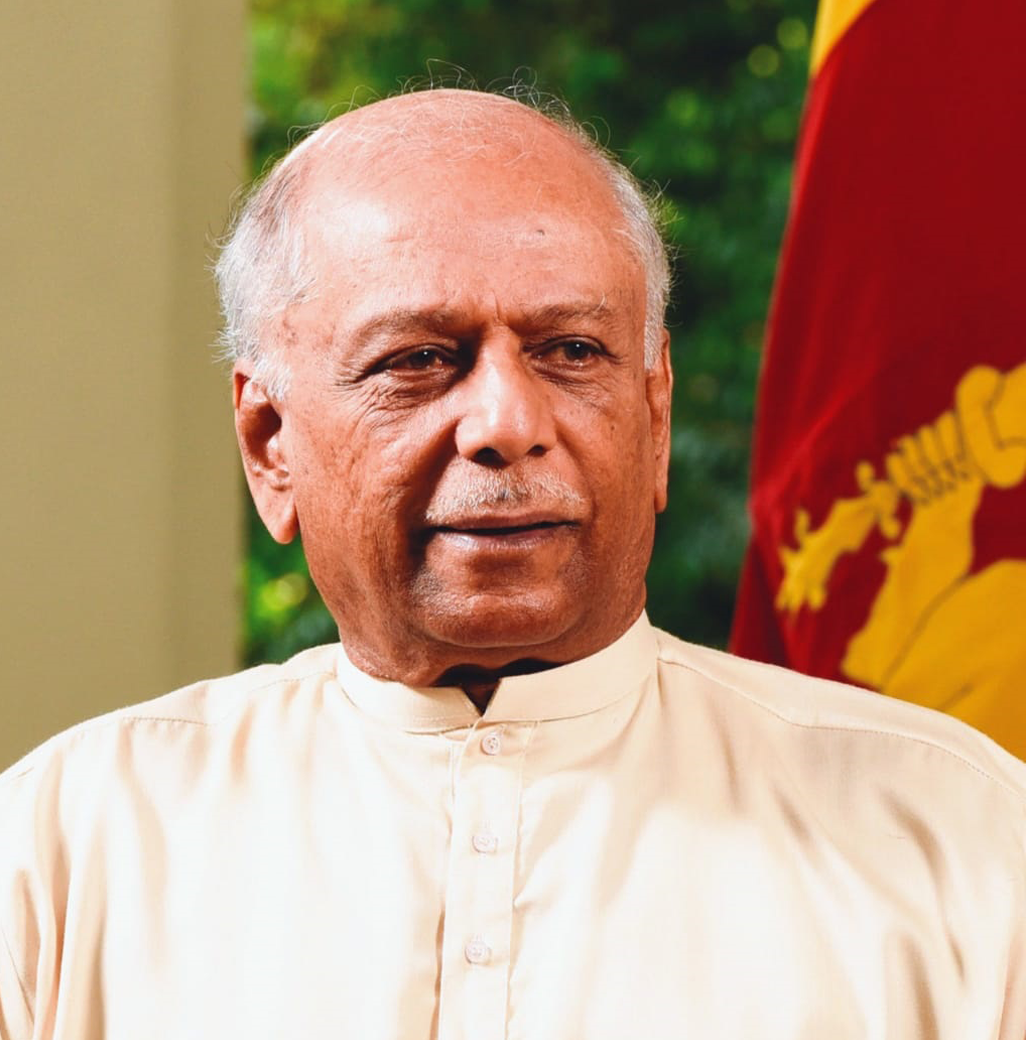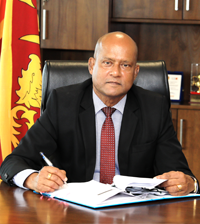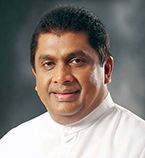This Ministry, which has been named as the Ministry of Public Administration, Home Affairs, Provincial Councils and Local Government, from 22 June 2022, delivers an excellent service for the enhancement of both all public servants as well as public institutions demonstrating maximum commitment and responsibility. The history of the Ministry goes back to a period of more than 8 decades. This Ministry, which has been established as a Department under the Ministry of Finance before 1931, has faced various changes under the Governments elected after Donoughmore constitutional reforms and at present performs an excellent service in the Public Administration.
Since 22 June 2022, two State Ministries i.e. State Ministry of Home Affairs and State Ministry of Local Government are maintained under the Ministry, which is functioning as Ministry of Public Administration, Home Affairs, Provincial Councils and Local Government.
The Ministry, which is the ‘Mahagedara’ (Main Center) of Public Service, looks forward with the provision of necessary guidance for all public servants and formulation of policies and plans for the public service based on the public policy in order to ensure an excellent service to the nation.
Main responsibility of the Ministry is the formulation of administrative provisions and regulations paying special attention to fairness, uniformity, and efficiency to ensure service to the utmost satisfaction of General Public. Accordingly, Ministry shoulders the responsibilities such as preparation of relevant Public Administration Circulars, introduction of revisions whilst making relevant observations wherever necessary. Formulation of policies at national level, giving interpretations and related guidance on public administration are also the significant tasks performed by the Ministry. Ministry thereby enhances the operations and administration of the whole public service making the way to ensure more productive and effective service delivery.
Institutions, which are under the Ministry
- Department of Pensions
- The Public Service Mutual Provident Association
- Sri Lanka Institute of Development Administration
- Distance Learning Center Limited
- Department of Official Languages
- Official Languages Commission
- National Human Resources Development Council of Sri Lanka
- National Institute of Language Education and Training
Vision
“An excellent public service to the nation”
Mission
“Ensuring an excellent public service through proper administration, management and reformation of human resource”
Objectives
- Formulation of productive public policies on recruitments, remuneration and other service conditions in the human resource management of public service.
- Changing attitudes and expectations of the employees in public service in order to make positive responses to the requirements of general public.
- Formulation and implementation of new management structure in order to enhance productivity and quality of public service.
- Establishment and sharing of code of ethics. (Result oriented attitudes, accountability, proper use of resources, impartiality, transparency, etc)
- Provision of facilities for training programmes and identification of training requirement for conducting training programmes.
- Formulation and implementation of pension programmes with a view to provide remedial measures for issues relating to pension.
- Preparation of a framework for institutional development of public sector with the capacity for the achievement of targets and development targets and priorities.
- Promoting the implementation of information and communication technology to enhance the productivity and quality of the service delivery.
- Enhancement of the skills of the staff in public service.
- Enhancement, development and implementation of guidelines in order to simplify the systems and reformulation of processes to work with the changing environment.
Scope
Ensuring an excellent service delivery to the General Public minimizing the differences observed at provincial and divisional levels with a view to provide an optimum service to recipients avoiding duplication of tasks with the help of new strategies in information and communication technology and making a full scale capacity development in all public services.








 Hon. Dinesh Gunawardena
Hon. Dinesh Gunawardena Mr. Pradeep Yasarathna
Mr. Pradeep Yasarathna






 Grievances Handling
Grievances Handling 


 Hon. Mahinda Samarasinghe
Hon. Mahinda Samarasinghe Mr. B.K.S. Ravindra
Mr. B.K.S. Ravindra Productivity
Productivity Hon. Lasantha Alagiyawanna
Hon. Lasantha Alagiyawanna